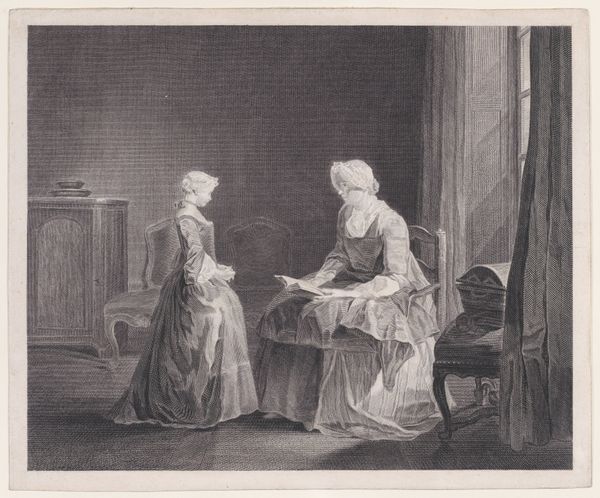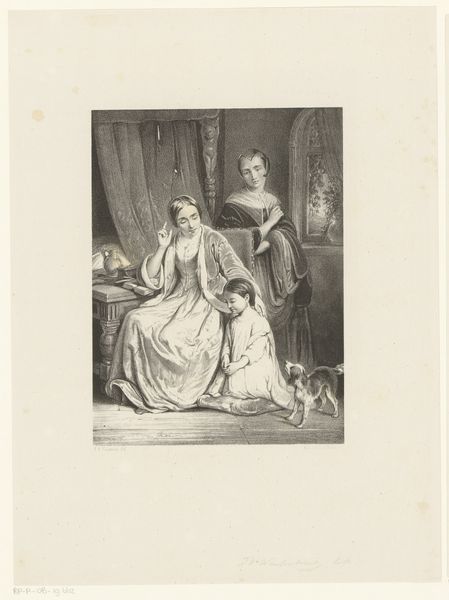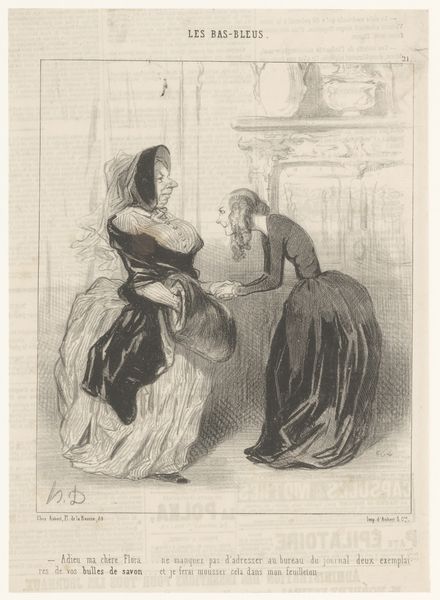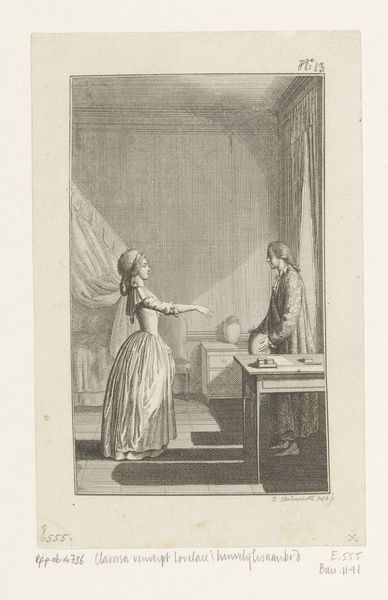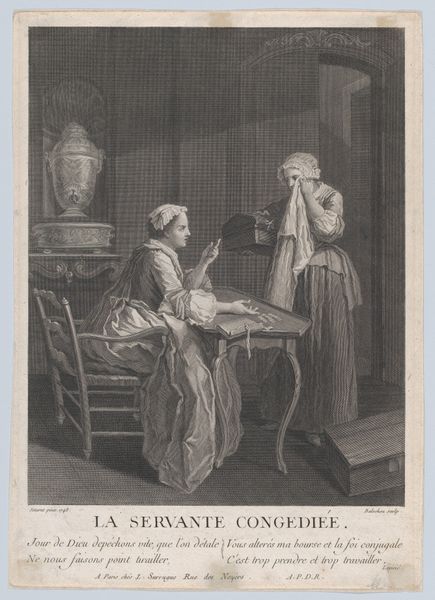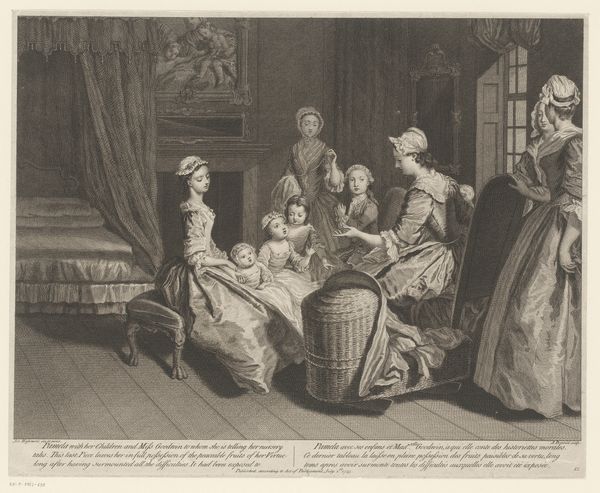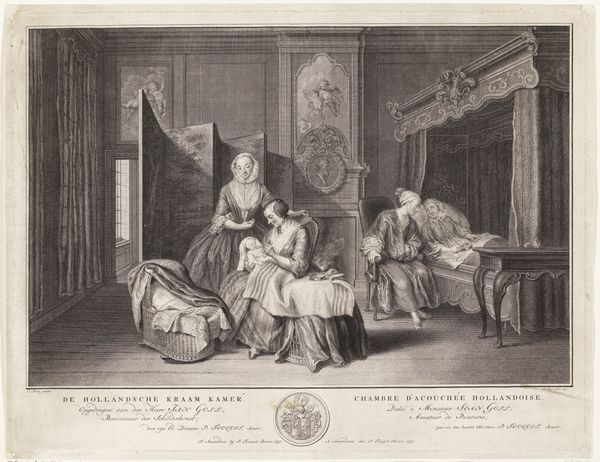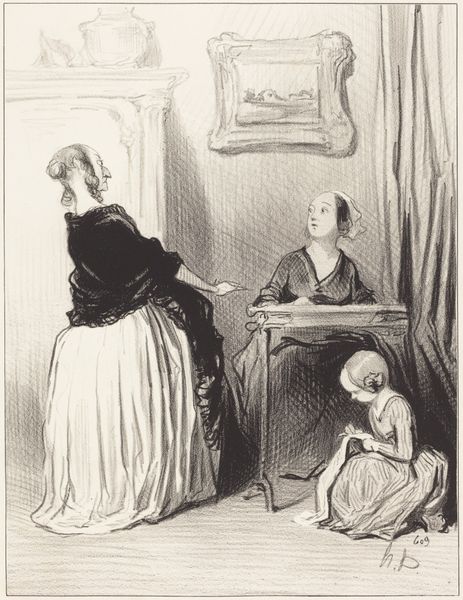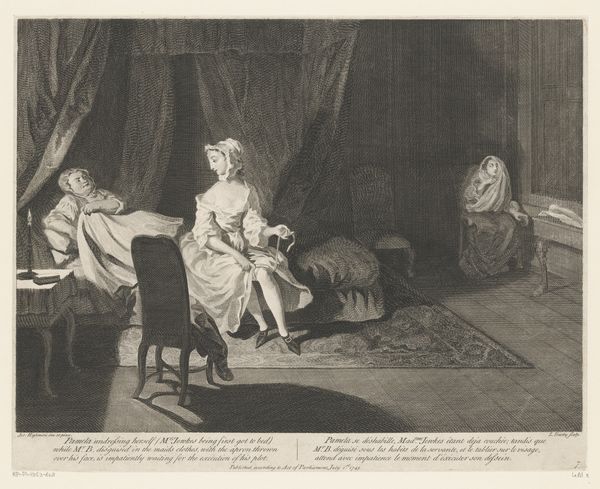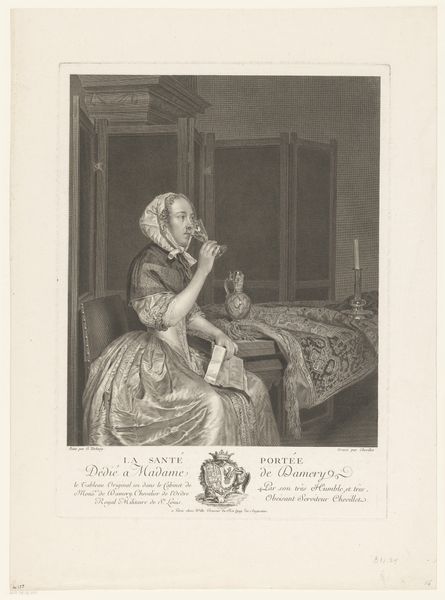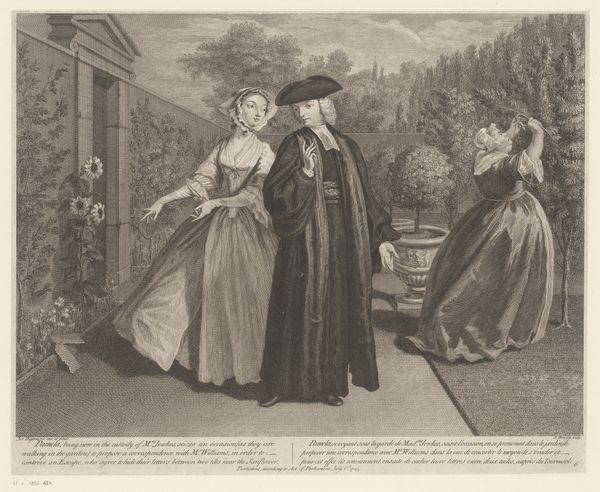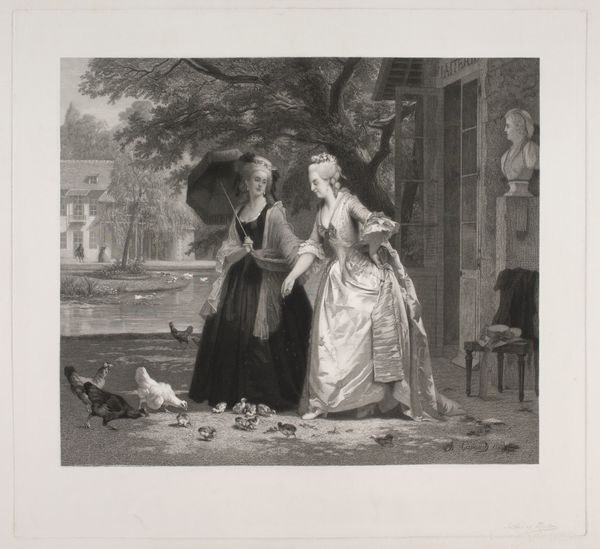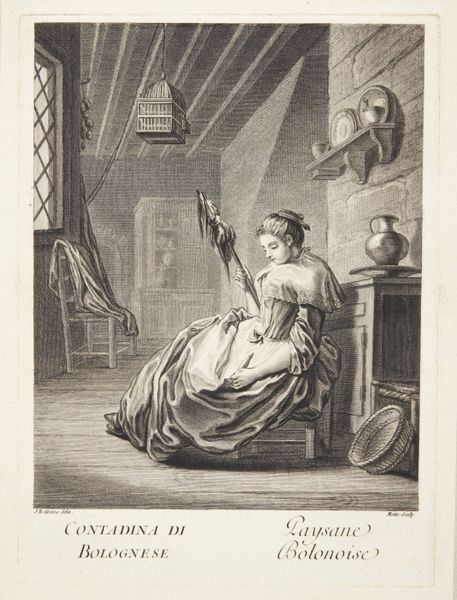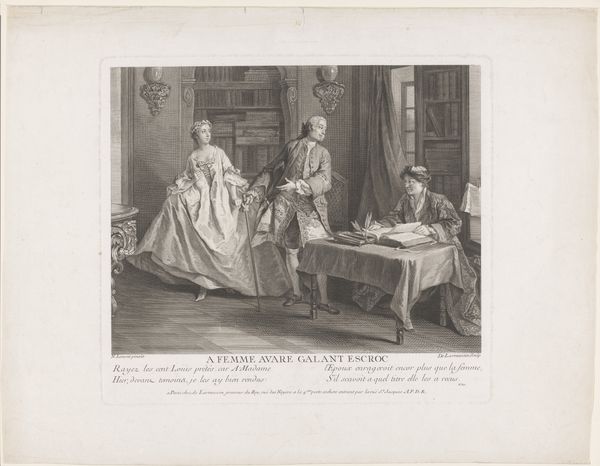
print, intaglio, engraving
#
portrait
#
16_19th-century
#
narrative-art
# print
#
intaglio
#
19th century
#
genre-painting
#
history-painting
#
engraving
#
rococo
Dimensions: height 290 mm, width 364 mm
Copyright: Rijks Museum: Open Domain
Editor: This is "Pamela verdeelt haar kleren in drie bundels," an intaglio print by Antoine Benoist from sometime between 1731 and 1770. It feels very theatrical, like a scene from a play. There's a strong emphasis on gesture and a defined light source. How do you interpret the composition? Curator: Focusing solely on its intrinsic properties, we observe how Benoist utilizes a complex interplay of lines to construct space and form. Consider the contrast: the delicate, almost ethereal quality of the protagonist, rendered through fine, precise lines, against the more heavily etched, textured surfaces that define the background. Do you perceive how this contrast influences our understanding of the figures? Editor: I see what you mean. The lines are more dense in the background making Pamela and her garments stand out. I wonder if that creates a focal point and leads your eyes through the work? Curator: Precisely. Benoist masterfully directs our gaze, structuring the visual field. Consider the spatial relationship between the figures: the young woman, bathed in light, occupies the center, flanked by the peering faces, reinforcing her narrative importance. We must note how the rococo style influences this visual language, valuing movement and decorative effect, while maintaining control. What visual tensions emerge in this piece for you? Editor: I appreciate that even though the print is monochrome, you can differentiate all the subjects, materials, and setting from just varying line work. It's remarkable, really. I'll never look at a black and white print the same way again. Curator: Indeed. It’s through meticulous arrangements of line and tone that the work gains depth, complexity, and its enduring fascination.
Comments
No comments
Be the first to comment and join the conversation on the ultimate creative platform.
